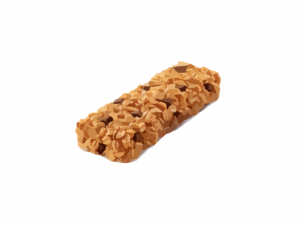What To Do When Your Child Has An Allergy Attack

Allergies are a common occurrence, and children are not exempted from them. Parents must know how to handle allergy attacks in their children.
An attack is a sudden onset of symptoms due to exposure to a particular allergen, causing the immune system to overreact. As a parent, seeing your child suffer from an allergy attack can be distressing, but there are several things you can do to provide quick relief.
This blog will guide you on what to do when your child experiences this horrible experience.
Recognize The Symptoms
The first step to handling a situation like this is recognizing the symptoms. Symptoms of allergy attacks can vary, depending on the allergen affecting your child.
However, some common symptoms include sneezing, runny nose, rashes, hives, itching, swelling, shortness of breath, coughing, and wheezing.
As a parent, it’s essential to watch for these symptoms and recognize them when they occur.
Identify The Allergen
The next crucial step is identifying the allergen causing the outbreak or manifestation. Knowing the allergen will help you take the steps needed to prevent future exposure.
Common allergens that affect children include dust, pollen, pet dander, food allergies, and insect bites. If your child is prone to these circumstances, consider testing them for specific allergens.
Remove That Allergen
Once you identify the allergen, the next thing to do is remove it from your child’s environment. For example, if your child is allergic to dust, you should thoroughly clean their room and remove dust-producing items like carpets or stuffed toys.
If this is related to food, remove the food from your child’s diet and find suitable alternatives. If your child is allergic to mosquito bites, make sure you apply mosquito repellent, use mosquito nets, and avoid going outdoors during peak mosquito hours.
Its Medication Time!
If your kid is experiencing this medical reaction, it’s essential to have medication on hand. Antihistamines like loratadine and cetirizine can provide quick relief and alleviate allergy symptoms.
Epinephrine auto-injectors like EpiPen are also recommended for severe allergic reactions (anaphylaxis).
It is crucial to follow the instructions on the medication label and seek medical assistance if your child’s symptoms don’t improve.
Comfort Is The Best Medicine
While the reaction is happening, your child may feel uncomfortable and distressed. As a parent, you can offer comfort and reassurance to your child.
Distract them with games or a favorite TV show and offer plenty of fluids to stay hydrated. Aromatherapy with essential oils like lavender or peppermint can help soothe and calm your child.
Seek Professional Assistance
In some cases, these attacks can be severe and life-threatening. If your child experiences difficulty breathing, chest pain, persistent coughing, or wheezing, seek a local medical professional in your area.
Call emergency services, or take your child to the nearest hospital for urgent care.
Educate Your Child!
Educate your child on how to handle an allergy attack. Teach them to recognize the symptoms and what to do if an attack occurs.
Ensure they know how to use medication like inhalers or epinephrine auto-injectors if necessary.
It’s also advisable to inform their teachers, school nurses, and caregivers about their allergies and how to handle this outbreak.
Prevent This From Happening In The Future
Prevention is critical when it comes to allergies. Take steps to prevent exposure to allergens that affect your child. Keep their environment clean and free from allergens.
Consider taking shots (immunotherapy) that can help reduce allergic reactions over time. Weight loss, exercise, and a healthy diet can help prevent or relieve feelings and symptoms.
Closing Thoughts
As a parent, knowing how to handle an allergy attack in your child is essential. Recognize the symptoms, identify the allergen, remove it, administer medication if necessary, offer comfort, and seek medical assistance.
Educate your child on handling what works and does not work with their body and taking steps to prevent future episodes. Follow these tips to ensure your child’s safety and well-being during allergy season.






